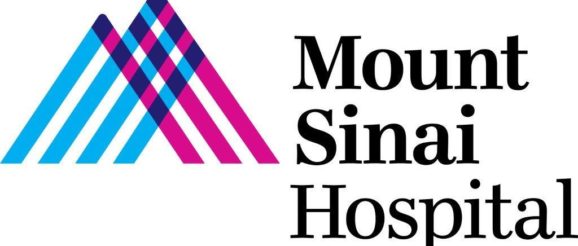Mount Sinai Launches Diversity Innovation Hub to Tackle Racism, Bias, and Gender Equity in Medicine

– Icahn School of Medicine at Mount Sinai launches first of its kind Diversity and Inclusion Hub spearheaded by the Mount Sinai’s Office of Diversity and Inclusion.
– Groundbreaking program to engage the local Harlem community and critical neighborhood stakeholders through innovation to tackle racism, bias, and gender equity in medicine and healthcare.
The Icahn School of Medicine at Mount Sinai – an international leader in medical and scientific training, biomedical research, and patient care – today announced the launch of a new Diversity and Inclusion Hub, a groundbreaking initiative spearheaded by the Mount Sinai’s Office of Diversity and Inclusion. The initiative – known as the DIH – will serve as an incubator for cutting-edge ideas, utilize the latest technology and data, and represents a first-of-its-kind effort among medical institutions to diversify the pipeline as a career path while using innovation and technology to address social determinants of health in our surrounding communities.
Diversity and Inclusion Hub Goals
As the DIH positions the Icahn School of Medicine at Mount Sinai as a continuing leader in the area, it will have several goals.
1. Aim to further the inclusion of people of color and women in healthcare innovation.
2. The existence of the DIH will allow the Mount Sinai community and its community partners to identify and use innovation and technology towards meaningful solutions in healthcare.
3. It will create a brain-trust to tackle problems and advance diversity and inclusion with innovative approaches on an ongoing and sustainable basis.
To accomplish those goals, the DIH will create a variety of design teams – one for students, one for trainees, one for administrative fellows, one for staff, and one for community leaders and stakeholders – designed to use the hub as an incubator for new ideas, identify resources, and consider new investments to advance healthcare. The first phase of the DIH, which launched on October 14, will provide mentorship, training, and networking opportunities for those students and staff.
In addition to trainings focused on issues such as healthcare tech and bias, a multi-layered fellowship program will be offered to medical students and will serve as an ideas accelerator for addressing social determinants in health for underserved communities. As students and their teams pitch ideas for closing social problems relating to equity, the best ideas incubated within the DIH will be connected with partners to support and invest in their concepts. The second phase of the program will lead to those ideas coming into fruition through pilot projects and demonstration work in various communities to address social determinants in healthcare.
Partnership with Stakeholders in East & Central Harlem
Through the community design team, the DIH hopes to partner with key leaders and stakeholders in East and Central Harlem, Mount Sinai’s surrounding neighborhood, like 100 Black Men of New York, Silicon Harlem, local business leaders, and entrepreneurs, and others. By engaging local community leaders, the DIH will aim to identify gaps in local healthcare delivery– and identify technological or data-driven solutions to close them.
Tackling Racism, Bias, and Gender Equity
The DIH reinforces Mount Sinai’s commitment to diversity, inclusion, and gender equity, which includes the creation of the nation’s first Dean for Gender Equity this year, the Racism and Bias Initiative launched in 2015, as well as the creation of the Office of Diversity and Inclusion in 2014, which builds on 20 years of groundbreaking work by the Patricia S. Levinson Center for Multicultural and Community Affairs at Mount Sinai. This record has helped Mount Sinai earn the No. 1 Ranking in Diversity and Inclusion in the “Top 12 Hospitals and Health Systems” list by Diversity Inc in 2017 and 2018. Earlier this year, Mount Sinai announced it had signed on to TIME’S UP Healthcare, developed a robust new organizational statement on diversity, began engaging in school-wide listening tours, and launched a new policy for medical and educational panels hosted at the School must include women and/or underrepresented groups.
Why We Need Diversity in Medicine
“We need to diversify medicine and ensure diverse participation in the innovation space in order to ensure quality care for underserved communities. Equity – be it for our staff, students, or patients – is vital to making our work a success. The Diversity Innovation Hub is a novel step forward in that effort” said Gary C. Butts, MD, Dean for Diversity Programs, Policy, and Community Affairs. “It’s our hope that this will not only be a difference-maker for the neighborhoods surrounding Mount Sinai, but that it will meaningfully and intentionally further diversify our innovation and health care industries. No other medical institutions nationwide are doing this work, in this way, and we hope this will become a model for all to replicate.”
